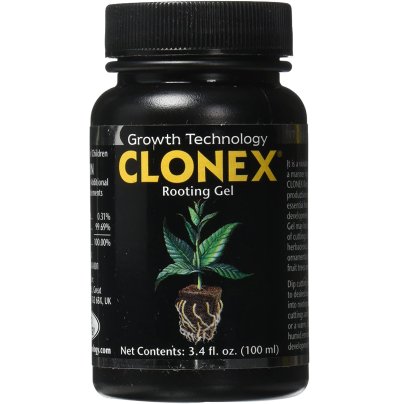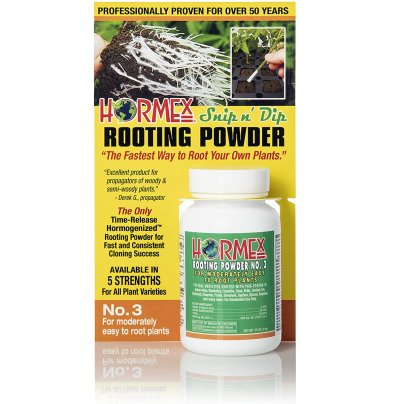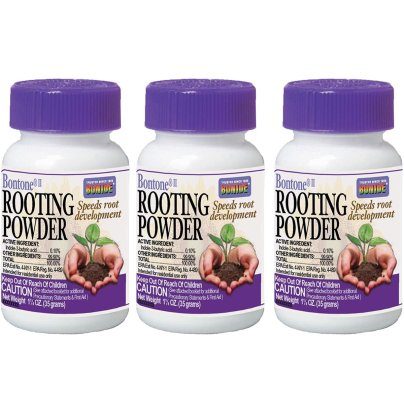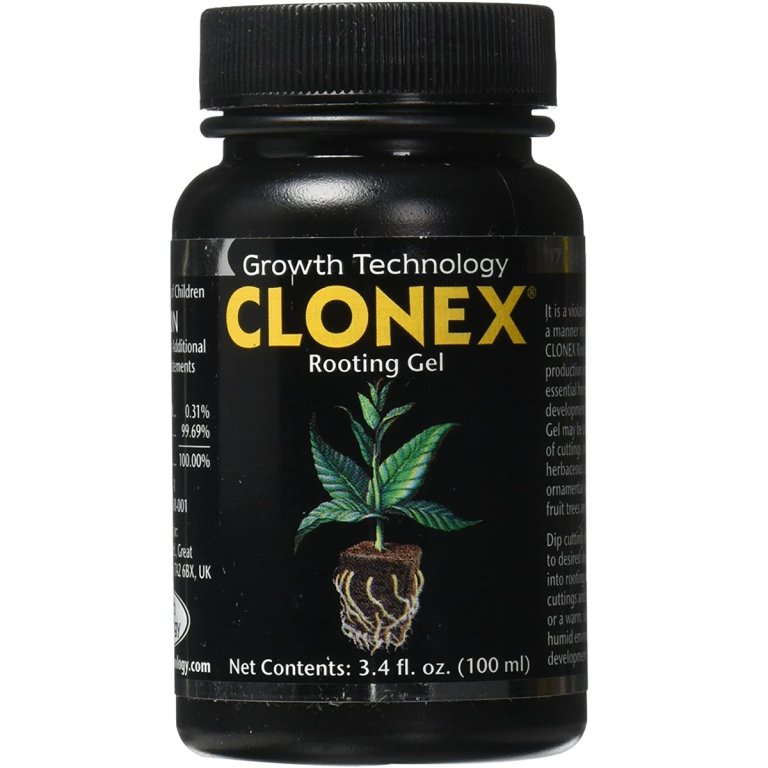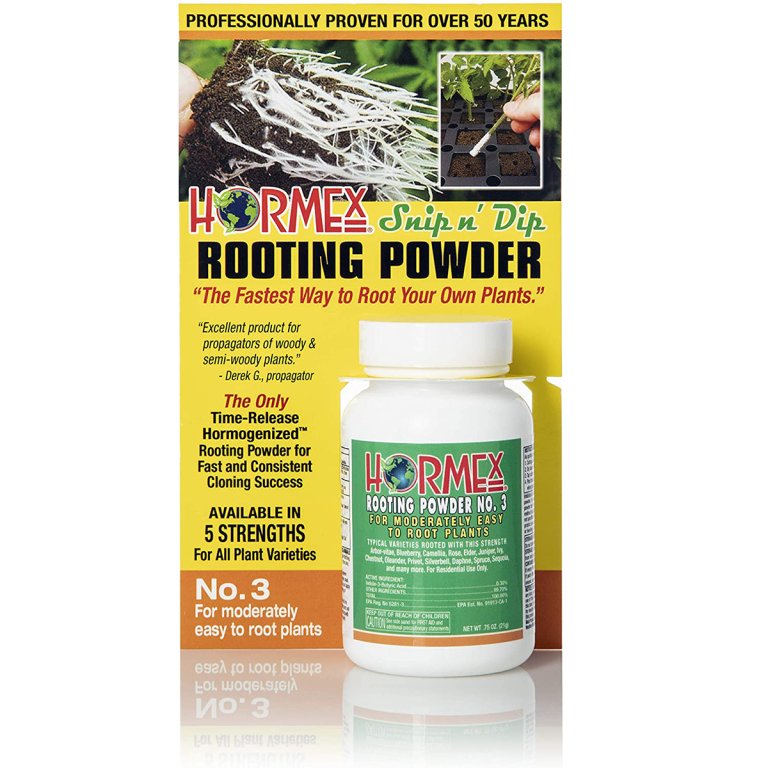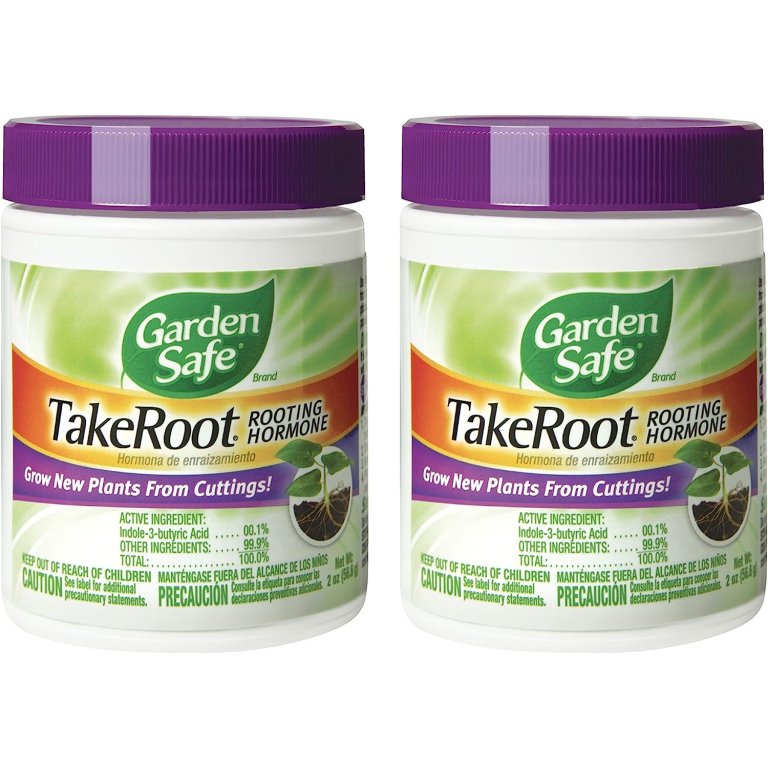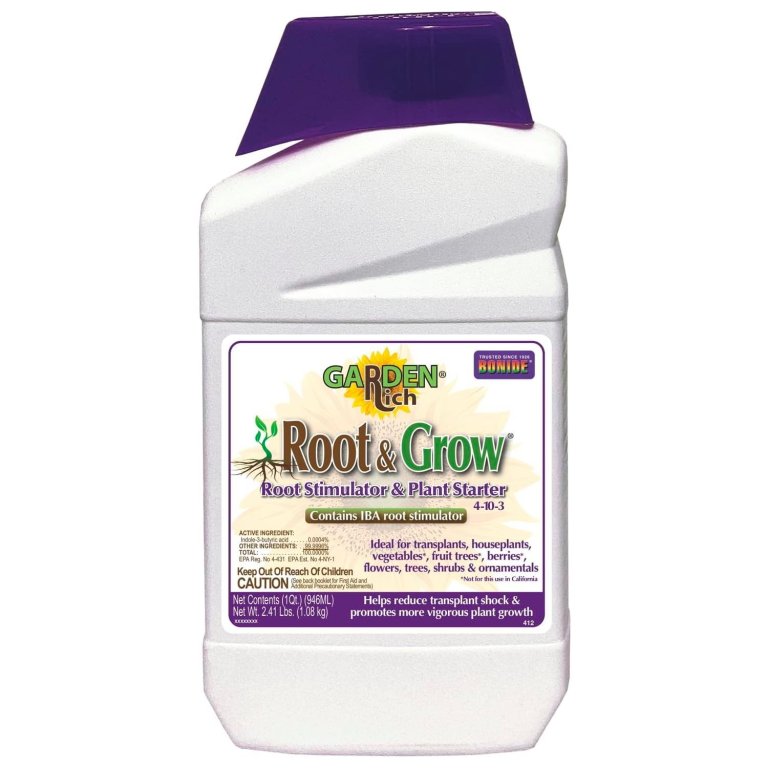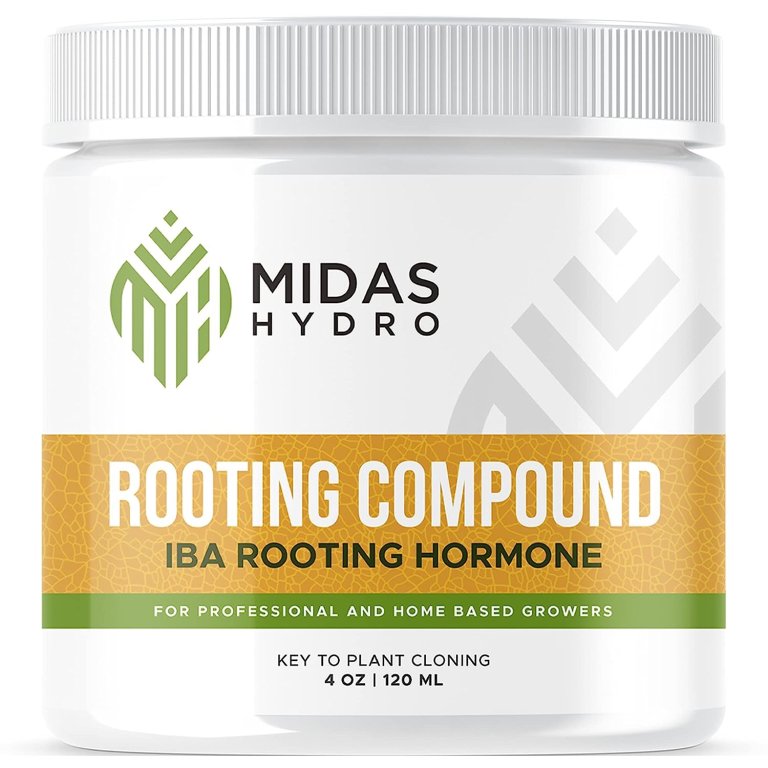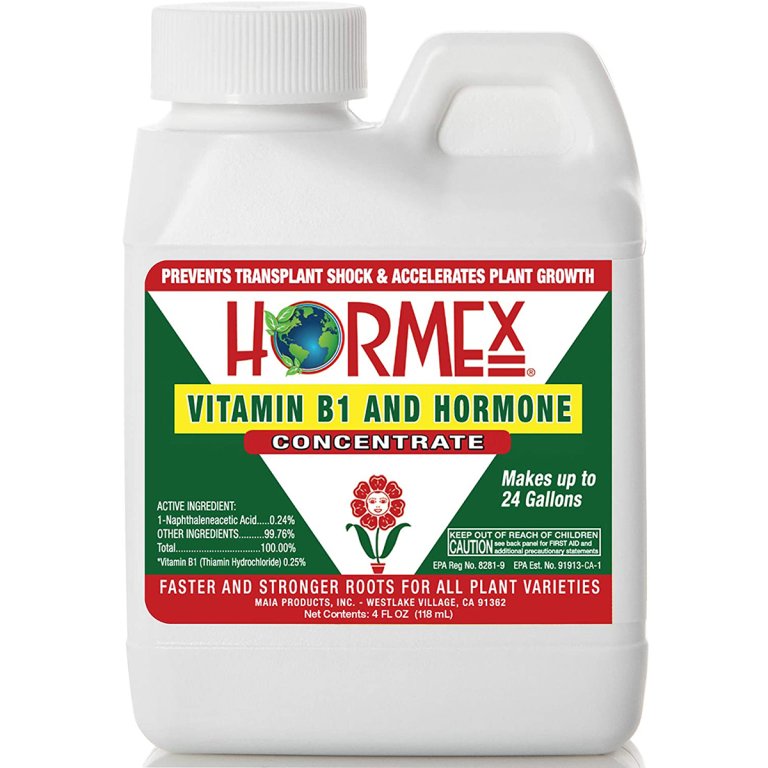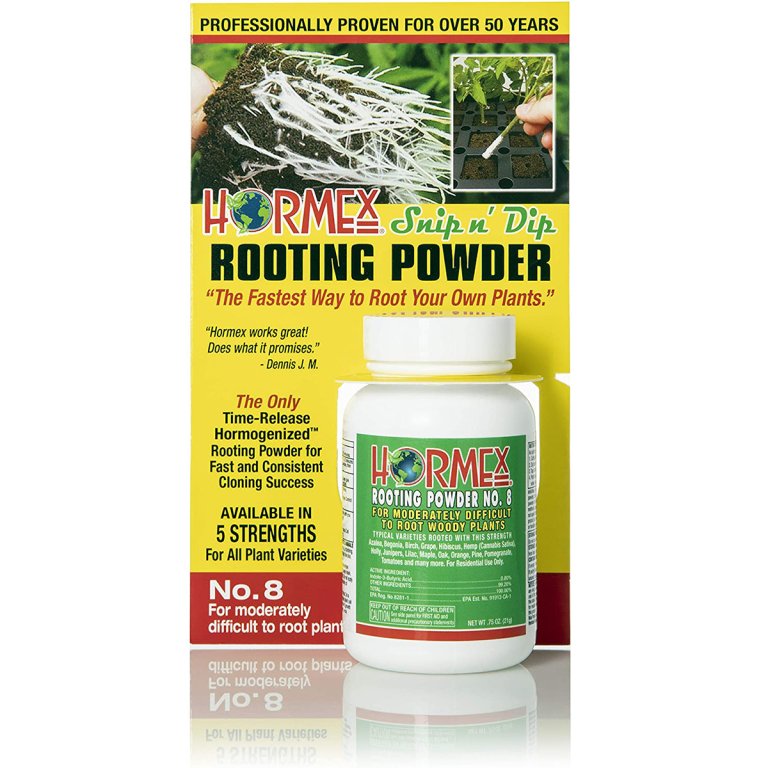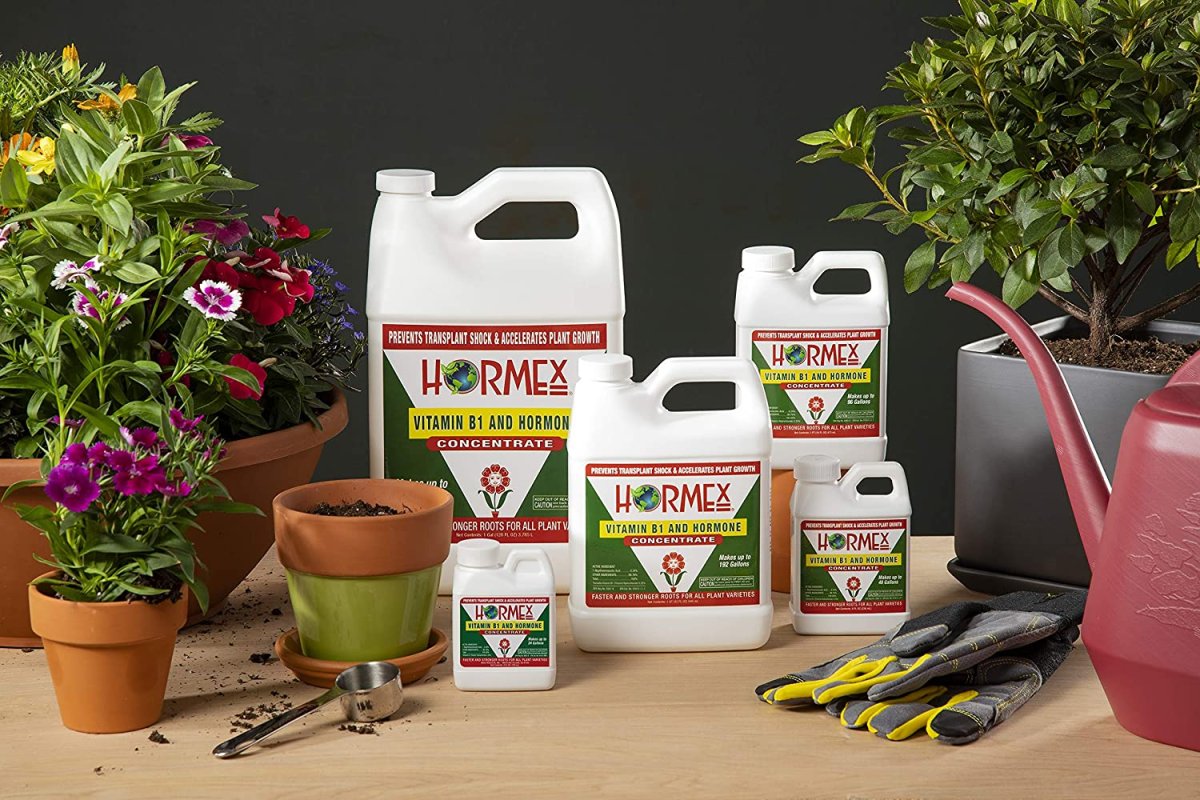
We may earn revenue from the products available on this page and participate in affiliate programs. Learn More ›
Gardeners use multiple methods for growing new plants, including starting them from seeds, bulbs, and rhizomes. However, when the goal is to produce a plant identical to an existing plant, taking a cutting is usually the simplest way. A cutting is a 4- to 8-inch section of stem taken from a healthy plant and then put in water or a growing medium to root. Using cuttings to propagate plants is suitable for many types of plants, including some species of trees and bushes, but it’s especially well suited to the indoor gardening plants that tend to grow well from cuttings. Even those who aren’t familiar with advanced gardening concepts and are just trying to clone a favorite plant from a planter can often be successful with cuttings.
Cuttings from some plants, such as ivy and Dieffenbachia, root easily in plain water. Others need a little encouragement, and that’s where rooting hormone comes in. Rooting hormones are chemicals that stimulate the growth of new roots on cuttings. For example, the odds of growing a plant from a cutting taken from a cascading plant in a hanging planter increase when a rooting hormone is used. Finding the best rooting hormone is somewhat a matter of personal preference because most rooting hormone products are very similar.
Ahead, learn what to look for in a rooting hormone product and find out why the following are among the top choices of home gardeners. Our favorite is Clonex’s HydroDynamic Rooting Gel thanks to its ready-to-use formula and suitability for different types of cuttings. Each of the top picks below was selected after an in-depth review of the market and thorough product vetting.
- BEST OVERALL: Clonex HydroDynamics Rooting Gel
- RUNNER UP: Hormex Rooting Hormone Powder #3
- BEST BANG FOR THE BUCK: Bonide Bontone II Rooting Powder
- BEST POWDER: Garden Safe TakeRoot Rooting Hormone
- BEST LIQUID: Bonide Root & Grow Concentrate
- BEST GEL: Midas Hydro IBA Rooting Hormone Gel
- BEST CONCENTRATE: Hormex Vitamin B1 Rooting Hormone Concentrate
- ALSO CONSIDER: Hormex Rooting Hormone Powder #8

Product Comparison
| Type | Active Ingredients | Quantity | |
| Clonex HydroDynamics Rooting Gel | Gel | IBA | 3.4 fluid ounces |
| Hormex Rooting Hormone Powder #3 | Powder | IBA | 0.75 ounces |
| Bonide Bontone II Rooting Powder | Powder | IBA | 1.25 ounces |
| Garden Safe TakeRoot Rooting Hormone | Powder | IBA | 2-ounce container |
| Bonide Root & Grow Concentrate | Liquid | IBA and fertilizer | 1 quart |
| Midas Hydro IBA Rooting Hormone Gel | Gel | IBA | 4 ounces |
| Hormex Vitamin B1 Rooting Hormone Concentrate | Liquid | NAA | 4 fluid ounces |
| Hormex Rooting Hormone Powder #8 | Powder | IBA | 0.75 ounces |
Our Top Picks
To qualify as a top pick, a rooting hormone should be simple to apply, the instructions should be easy to understand, and the product should contain either IBA or NAA (see the Ingredients section below for more information) to promote root growth. The following five products feature different types of rooting hormone—including liquid, powder, and gel—but all are top performers popular with experienced gardeners. Any one of the products in the lineup will be an asset for propagating plants from cuttings.
Best Overall
Clonex HydroDynamics Rooting Gel
What We Like
- Gel formula seals cut tissue around stem
- Suitable for starting a variety of cuttings
- Requires no mixing, and there’s or mess
What We Don’t Like
- Gel can loosen and become watery if not stored correctly
Product Specs
- Type: Gel
- Active ingredients: IBA
- Quantity: 3.4 fluid ounces
Looking for the sticking power of an easy-to-use gel? Consider this option from Clonex that contains the active ingredient IBA for stimulating root growth. The gel seals the cut tissue around the stem, helping to protect it from rot while encouraging strong root development. The gel is suitable for use on different types of cuttings, including flowering species, woody plants, and fruit tree cuttings, among others.
The jar contains 3.4 fluid ounces, plenty for rooting dozens of cuttings. There’s no mixing or mess, just dip the stem in the gel and insert it into a moist growing medium.
Get the Clonex HydroDynamics rooting hormone at Amazon or Tractor Supply Co.
Runner Up
Hormex Rooting Hormone Powder #3
What We Like
- Comes in powder form that can bolster sagging cuttings
- Contains no added chemicals, dyes, or preservatives
- Can also boost root growth in transplants
What We Don’t Like
- Adheres better when dipping a cutting in water first
Product Specs
- Type: Powder
- Active ingredients: IBA
- Quantity: 0.75 ounces
To propagate new cuttings, consider this rooting powder from Hormex that helps prevent stem rot while stimulating new root development. The powder, which can also help strengthen and bolster sagging cuttings, is suitable for use on most plants that can be propagated from cuttings.
The active ingredient is IDA. The Hormex powder does not contain added chemicals, dyes, or preservatives, making it desirable for use on vegetables and fruit plants used in food production. In addition to treating cuttings, it is also beneficial for helping transplants adapt to a new location. Hormex #3 comes in a ¾-ounce jar.
Get the Hormex #3 rooting hormone at Amazon, Grow Generation, or Hormex.
Best Bang For The Buck
Bonide 925 Bontone Rooting Powder
What We Like
- Can be used for many cutting types
- Also boosts growth of seeds and bulbs
- Can ease transplant shock
- Promotes healthy root production
What We Don’t Like
- Works best if cutting is dipped in water first
Product Specs
- Type: Powder
- Active ingredients: IBA
- Quantity: 1.25 ounces
Bonide’s rooting powder is well suited for helping establish healthy, robust roots on stem cuttings, but it’s also useful for encouraging strong growth when planting seeds and bulbs. The active ingredient, IBA, stimulates root growth on most cuttings, including softwoods, hardwoods, vegetables, and flowering varieties.
It comes in powder form and can also be used to coat seeds and bulbs by sprinkling it directly on them before planting. When transplanting a plant to a new location, users can also mix a teaspoon, or so, of the powder in the growing medium to reduce transplant shock and help the plant adapt. Each jar contains 1.25 ounces, enough for a few dozen cuttings or transplants.
Get the Bonide rooting hormone at Amazon,The Home Depot, or Walmart.
Best Powder
Garden Safe TakeRoot Rooting Hormone
What We Like
- Suitable for use in gardens, greenhouses, and residential areas
- Stimulates at the root
- Easy to use and more affordable than other powders
What We Don’t Like
- Low concentration formula
Product Specs
- Type: Powder
- Active ingredients: IBA
- Quantity: 2-ounce container
For a concentrate that can help your plants grow strong, look no further than the Garden Safe TakeRoot Rooting Hormone. This pick comes in a low-concentrate, powdered form that stimulates plant cuttings at the root.
This easy-to-use powdered formula is made with indole-3-butyric acid, a compound that is naturally occurring in plants. This ingredient is safe to use on African violets, roses, and other plants that are grown in residential, greenhouse, and garden spaces. It should be noted that the roots should be moistened before applying the hormone.
Get the Garden Safe rooting hormone at Amazon (2 pack) or Lowe’s.
Best Liquid
Bonide Root & Grow Concentrate
What We Like
- Helps promote root growth and boost plant growth
- Makes up to 9 gallons of fertilizer/growth hormone
- All-in-one fertilizer/rooting hormone
What We Don’t Like
- Contains a smaller amount of IBA
Product Specs
- Type: Liquid
- Active ingredients: IBA and fertilizer
- Quantity: 1 quart
Bonide Root & Grow concentrate is a 4-10-3 (4 percent nitrogen, 10 percent phosphate, and 3 percent potash) fertilizer with IBA growth hormone. It helps reduce transplant shock and promotes vigorous plant growth. The 1-quart concentrate will make up to 9 gallons of fertilizer/rooting stimulator. It instantly mixes with water, and the diluted solution is applied directly onto the soil and roots.
The rooting hormone fertilizer combo works on all types of plants, including vegetables, trees, shrubs, and houseplants. It’s designed to be used while seeding or on transplants to help stimulate early root formation. It also works well as a rooting hormone for plant cuttings due to the IBA growth hormone in the mix. It mixes at a ratio of 3½ tablespoons per gallon of water—so a quart can last an entire growing season. The Bonide Root & Grow concentrate is perfect for gardeners who want an all-in-one product that will give their plants a boost at planting time.
Get the Bonide Root & Grow rooting hormone at Amazon, Ace Hardware, or The Home Depot (128 ounces).
Best Gel
Midas Hydro IBA Rooting Hormone Gel
What We Like
- Concentrated formula can help reduce cloning time
- Gel is easier to use than powder products
- Large 4-ounce container
What We Don’t Like
- Used gel should not be poured back into the container for future use
Product Specs
- Type: Gel
- Active ingredients: IBA
- Quantity: 4 ounces
Packed in a convenient 4-ounce container, this cutting-edge rooting hormone gel from Midas Hydro is formulated with a high concentration of indole-3-butyric acid, the active ingredient known for its powerful rooting properties. The strong IBA formula gel can help reduce cloning time, enabling gardeners to achieve stronger and healthier roots in no time. Whether you prefer water propagation, general hydroponics, or other methods, Midas Hydro rooting gel is compatible with various techniques, providing versatility and ease of use.
For users who dislike the mess involved with rooting powder, a gel option may be a cleaner and more user-friendly choice. Note that used gel cannot be reused, though, so users may go through it quicker than they anticipate.
Get the Midas Hydro rooting hormone at Amazon, Walmart, Etsy, or Midas Hydro.
Best Concentrate
Hormex Vitamin B1 Rooting Hormone Concentrate
What We Like
- Affordable concentrated liquid
- Includes vitamin B1 to add nutrients
- Can also be diluted for use on transplants
What We Don’t Like
- Strong concentrate might require mixing with water
- NAA is a synthetic chemical
Product Specs
- Type: Liquid
- Active ingredients: NAA
- Quantity: 4 fluid ounces
Also from Hormex, this rooting hormone features the active ingredient NAA and comes in a concentrated liquid form that will treat dozens of cuttings. To use, dip a fresh cutting into the undiluted rooting hormone and insert the cutting in a moist growing medium. For an added root-boosting effect, mix 1 teaspoon of Hormex concentrate in 1 gallon of water and use the solution to saturate the soil around the new cutting.
When transplanting newly rooted plants, use the same liquid solution for watering to reduce transplant shock. The inclusion of Vitamin B in the Hormex product adds a vital nutrient to the soil for robust plant growth. Best of all, the rooting hormone is available at an attractive price point.
Get the Hormex Vitamin B1 rooting hormone at Amazon or Hormex.
Also Consider
Hormex Rooting Hormone Powder #8
What We Like
- Suitable for cuttings from most plants
- Package contains plenty of powder
- Free of dyes and preservatives
What We Don’t Like
- Requires dipping a cutting in water before dipping in powder
Product Specs
- Type: Powder
- Active ingredients: IBA
- Quantity: 0.75 ounces
For quick rooting of most cuttings, opt for a rooting hormone like this one that contains the active chemical IBA. Suitable for use in most plants, including greenwood and softwood cuttings, this Hormex option is formulated to promote the development of healthy roots. The product comes in powder form for easy application.
A single jar contains 0.75 ounces of powder—plenty for rooting dozens of cuttings. For best results, take cuttings only from the current season’s growth from a healthy mother plant. Dip the end of the cutting in water before dipping it in the powdered rooting hormone.
Get the Hormex #8 rooting hormone at Amazon or Hormex.
Jump to Our Top Picks
How We Chose the Best Rooting Hormones
Use of a rooting hormone can help gardeners duplicate favorite plants from cuttings. Although most rooting products are similar, we looked at types and some features of products to help buyers choose based on personal preference. This list includes liquid, gel, and powder formulas and a choice of the two most common active ingredients. We also considered application methods and ease of use.
What to Consider When Choosing a Rooting Hormone
Rooting hormone products are relatively inexpensive and range from around $13 for a bottle that will treat up to 50 cuttings to $25 (or more) for a large container that will treat more than 100 cuttings. The most significant difference is in the type of product and whether it contains added ingredients, such as nutrients or fertilizers intended to help the plant grow and thrive once the cutting develops roots.
Form
Rooting hormone products come in three main types: liquid, gel, and powder. No matter the type, all three are used in a similar manner: the gardener dips the end of the cutting in the hormone product and then puts the cutting in a moist, growing medium.
- Liquid: Bottles of liquid rooting hormone come in either ready-to-use formulations or concentrated formulations that require mixing with water. Some gardeners feel liquid offers the best coverage since it can seep into tiny pores in the cutting.
- Gel: This rooting hormone adheres well to cuttings and provides a slightly thicker coating of the hormone than liquid varieties, which may offer more root-boosting stimulus.
- Powder: One of the most common types of root hormone products available, powder is simple to use and offers a thick layer of root-stimulating chemical. Before dipping the cutting in the powder, many gardeners will dip the cutting in water, so the root hormone adheres better.
Ingredients
The majority of rooting hormone products on the market today contain one of two common chemicals, IBA or NAA, both of which are synthetic forms of natural plant hormones known to stimulate root growth.
- Indole-3-butyric acid (IBA): A chemical form of the plant hormone, auxin, IBA triggers root growth and is found in many commercial rooting hormone products of all types.
- Naphthaleneacetic acid (NAA): Similar to IBA, NAA is a synthetic chemical formulation that stimulates root growth and retards rotting. It is often found in all three types of rooting products.
- Added nutrients: While IBA and NAA are the active ingredients in rooting compounds, some products contain additional nutrients, such as nitrogen, to boost leafy green growth or have various vitamins to help bolster floral production. These added ingredients can be helpful, but some gardeners prefer to use only rooting compound, so they can add the exact nutrients they choose to the soil later.
Application
The information necessary for plant propagation in cuttings is available in gardening books, but, for the most part, the process is straightforward and simple enough for even newbie gardeners. The following offers an idea of the basic techniques used for taking cuttings and applying rooting hormone. Before proceeding, do a little research on the intended plant. While cuttings can successfully propagate many plants, others require different methods. Some cuttings should be from greenwood (new, supple growth), while others should be taken from the older, hardwood portions of a stem. Knowing the best method of propagation for a specific plant will increase the odds of success.
- Take a 4- to 8-inch stem cutting from a healthy plant.
- Strip all but one or two top leaves from the stem.
- Bruise the end of the stem by slightly crushing it or take a sharp knife and scrape away some of the stem’s outer covering. This step helps the rooting hormone penetrate more efficiently.
- Dip about 2 inches of the stem in the rooting compound. If you’re using a powdered mixture, dip the cutting in water first, so the powder adheres well.
- With a pencil or stick, make a hole about 2 inches deep in the growing medium and insert the treated end of the cutting.
- Press the growing medium around the cutting and cover the whole pot or tray with plastic to keep moisture in while the cutting takes root. By keeping the cutting in an enclosed container, the soil will stay moist, which is a requirement for roots to develop. Alternately, consider starting the cutting in a self-watering planter where it will receive a consistent amount of moisture.
FAQs
The application of rooting hormone increases the odds of success when propagating with cuttings. The product stimulates root growth and reduces the risk of stem rot. For gardeners new to the product, a few questions are to be expected.
Q. How does a rooting hormone work?
A rooting hormone stimulates root growth at the cut end of a stem.
Q. Is rooting hormone necessary for cuttings?
Not always, but it’s handy to have around. Some plants, especially indoor plants, can root in just plain water.
Q. How long will my rooting hormone take to work?
Depending on the plant, roots should start to develop within two to six weeks. Research the plant you’re trying to propagate for a specific timeline.
Q. Do rooting hormone solutions work for hydroponic plants?
Rooting hormones are often used in hydroponic systems to stimulate plant growth.
